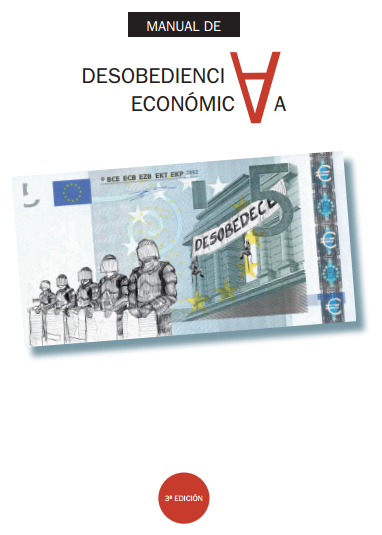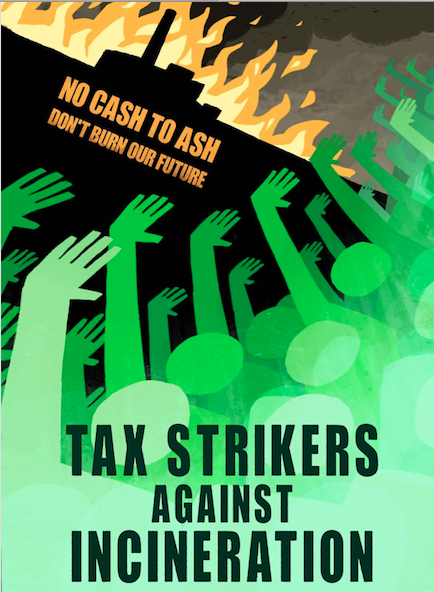
Sudhir Alladi Venkatesh’s Off the Books: The Underground Economy of the Urban Poor describes and analyzes the economic and political relationships in a poor section of Chicago.
Venkatesh was already familiar with this roughly ten-square-block area, which he pseudonymizes to “Maquis Park,” from an earlier study he had done of public housing and gang activity in the area.
In the course of making that study, he stumbled on the underground economy of the region and “saw a world open in front of me whose significance I couldn’t have imagined.
The innumerable economic exchanges that took place every hour, every day, no longer seemed random or happenstance.
There was a vast structure in place, a set of rules that defined who traded with whom, who could work on a street corner or park bench, and what prices could be set and what revenue could be earned.
There were codes in place for settling disputes and adjudicating conflicts, unwritten standards that tried to ensure that haggling did not get out of hand…”
He studied what he saw, interviewed key participants, sat in on negotiations, read the existing literature, and now he’s sharing what he discovered with us.
I was interested in the book because I see that participating in an underground economy is a way of lessening one’s support for government by contributing less, directly and indirectly, to the various government payoffs (and reinforcements of authority) that are necessary in the above-ground economy.
I hoped that I could learn from the experiences of an underground economy that has had a long time to develop methods and customs in opposition to the above-ground economy.
Venkatesh summarizes the underground, or “shady” economy he discovered as follows:
“underground” institutions provide a backbone for all aspects of local enterprise, from loans and credit to advertisement.
The cash economy abuts a world where trading and payment occur through verbal promises, in-kind payments, and barter.
Laborers and entrepreneurs, including small business owners, general workers, equipment renters, and creditors, participate in highly intimate exchange networks, where personal connections and impersonal contractual exchanges coexist.
In the ghetto, advertising and marketing, credit and capital acquisition, enforcement and regulation, and other aspects of commerce seem as easily conducted via informal channels and outside the government’s eye as through legitimate venues where the state is the arbiter and lawmaker.
“Indeed, figuring out exactly what is and isn’t ‘criminal’ can be very hard in the ghetto, because it is difficult to find much in people’s day-to-day lives that does not involve the underground economy.”
Venkatesh himself got caught up in the game in the course of his study.
He was occasionally called upon to be an impartial mediator of disputes that arose in the underground economy.
He is “not entirely comfortable” with this.
Though he “contributed some stability to a world born of poverty and desperation…” he felt that this made him “complicit in helping to perpetuate these conditions.”
This discomfort with the underground economy in all of its forms (some of which would make just about anyone uncomfortable) permeates his book.
The underground economy is, to Venkatesh, at best a necessary evil: “it is nearly impossible for residents… to avoid underground economic activity: it is an ever-present threat [emphasis mine] on the streets, in parks, and other public places; and for the working and poor families, it is always a temptation…”
People in Maquis Park turn to the underground economy to bring goods, services, and resources into the home.
The underground may offer these commodities on a cheaper basis, there may be opportunities to pay in-kind when cash is not at hand, and the shady arena might be the only place to obtain certain items — not only illicit services like sexual favors, but even short-term cash loans and household items that are not available in local stores.
In other words, the underground economy may be viewed from above as a vestigial space of exchange, one defined largely by its evasive posture with respect to the legitimate realm, but in a poor ghetto it is often the primary (or preferred) economy.…
…the underground arena is not simply a place to buy goods and services.
It also is a field of social relationships that enable off-the-books trading to occur in an ordered and predictable manner.
That is, it necessarily involves social regulation, such as self-policing, dispute resolution, and conflict mediation.…
Importantly, the regulation and management of the underground is itself taking place outside the context of the state.
In this arena, the government apparatus of courts, lawyers, and police does not provide the primary forum for enforcing contracts and adjudicating claims of impropriety.…
There is no legitimate third-party arbiter — more accurately, at any one time several parties may be fighting for the right to oversee and tax exchange.
So what seems at first to be an examination of an economic subculture that exists under the radar of government becomes instead a look also at an underground government that has evolved alongside the underground economy.
This underground government, while not strictly condoned by the above-ground government, certainly exists in symbiosis with it.
Among the goods and services available in the underground economy are above-ground government-provided goods and services; and among the carrots and sticks offered by the underground government to encourage compliance are protection from or vulnerability to above-ground government sanctions.
For instance, one street hustler provides information to the police based on what he hears on the street.
In exchange, the police look the other way and don’t give him grief over his activities.
The hustler has expanded his franchise, and now offers this umbrella of police protection to several people who work under him and who pay him and provide additional information.
If you need a permit to do business from the above-ground government, you may need to pay a bribe to an above-ground government official, or you may need to pay a broker in the underground economy who has a relative in the permit office.
If you want to sell drugs in the park, you may need to pay a tax to the local gang leader and to respect restrictions on selling before and after school hours to honor a deal he has made with a local minister who has in turn arranged for the police to turn a blind-eye to dealing at other times.
The boundaries between the “legitimate and shady” worlds, either economically or politically, seem nearly impossible to find, though Venkatesh often implicitly assumes there is a line, moral and real, that divides them.
In one episode, a group of well-connected ministers starts to work with a local political machine, promising votes and other support in return for what they hope will be better government responsiveness to the community.
But others find that even though community power brokers have purchased an ear at City Hall, they still have to go through organized crime or underground brokers to get anything done.
One said:
You got a black mayor, black middle-class people, talking about what kinds of change is taking place, how they are going to turn this city around.
I saw that, I helped that along, I was proud of that.
Then, I go home and I got a whole different scene.
I got Tee-Bone, the [gang] leader who controls the local parks, says who can hang out there.
I got Pinter, the hardware store owner, who could get you out of jail for $100 ’cause he knows all the cops.
I got Terry, who could get you a permit if you wanted to build something or fix your house.
Cost 50 bucks and he’d call someone downtown.
It’s like you were politically schizophrenic or something.
You got one group of people who making things happen downtown, then you got other people you need to please to get things done down here.
Frustrated with the lack of concrete benefits, two ministers threaten to withdraw from the coalition supporting the political machine, and, having lost faith in the carrot, are shown the stick:
“I told them if they took their votes away, I’d see to it that they couldn’t stay in the community no more,” said Martin.
“Simple as that. I would perceive their behavior as a destructive force, no more, no less.”
The politically connected have any number of tools they can use to make good on such threats.
For instance, the “local elected alderman… can ensure that permits and easements, essential to any building or shift in land use, are distributed in a timely fashion without bureaucratic delay… [and] also has some power over regulatory and enforcement bodies that give penalties for a seemingly endless list of business practices… [and] can also prevent trash from being picked up outside their stores, direct police and city inspectors to their stores at a minute’s notice, and harass them with fines and warnings.
It is commonplace to hear proprietors complain that they must continually contribute money to the alderman’s campaign in order to ensure that the city government works for them and that the government does not target them unfavorably.”
Merchants “give free goods and services to the alderman and her friends.
In return they received expedited treatment on building permit requests, their family members were relieved of jury duty, the potholes outside their store were repaired in a timely manner, and police looked the other way when they became creative with their businesses…”
Though the above-ground government attempts to legitimize its extortion by pointing to the services it provides and claiming that it is working in the interests of the public, in this, too, it is mirrored by the underground government.
The local gang leader, “Big Cat,” tells Venkatesh:
“Ask anybody around here, I am a man of the community, a community man.
I give money, my boys clean up the parks, we help old ladies across the street.
Anything to help people get what they need.”
His gang doesn’t extort money from local above- and under-ground merchants without offering anything in return.
They donate money to local churches and social service centers, provide school hall monitors, “organize recreational leagues, keep drug dealing away from schools and public parks, and otherwise address public safety problems (that they themselves may have created)” and “find stolen goods, prevent vandalism, and monitor the homeless persons and squatters who sometimes harassed customers and urinated in the shops.”
And like any successful parasites, they have an interest in their hosts not only surviving but flourishing, so they work to recruit customers for the businesses they extort from.
Instead of finding a free economy operating under the government radar, in Venkatesh’s book we largely find instead an unfree economy under the thumb of a smaller, cruder, less-consistent version of the same extortion racket as what you find on a slightly larger scale in City Hall, and then again if you zoom out to the State Capitol, again if you zoom out to the nation as a whole, and in the imaginations of the World Federalists and Trekkies and Theists you can just keep cranking the zoom from there if you care to, each level symbiotic on the ones surrounding it.
Venkatesh describes a group of community members who held weekly meetings with “Big Cat,” mediated by a local minister.
The community members tried to get “Big Cat” to accept some limits on his gang’s behavior, and, more generally, to accept that they had the authority to establish these limits.
I felt like I was reading King John reluctantly arguing with rebellious English barons, on a smaller scale, eight hundred years later, and several miles west.
But to Venkatesh, these aren’t just differences of scale (or time and place) but qualitative differences or moral differences that come into play only at the boundary between the “shady” economy of Maquis Park and the “legitimate” economy that pays protection money mostly to those entities that have offices downtown.
And though he’s usually pretty objective, he sometimes has to really labor to try to differentiate between the good, legitimate, and government-approved — which includes taxpaying merchants and such mythical beings as “a legitimate third-party agent, like the police, who has the consent of all parties to enforce laws and maintain order” — and the bad, “shady,” and underground, which ranges from extortionists like “Big Cat” to prostitutes to caterers.
After a while it feels like you’re reading a discourse on the movement of the bodies of the solar system that refuses to abandon the idea of a fixed, unmoving earth at the center of it all.
“But wouldn’t it be a whole lot simpler if…?”
Wouldn’t it be simpler to recognize that the alderman who directs the wrath of the inspectors and the beneficence of the pothole-fillers for those who contribute to her campaign is playing the same damned game as “Big Cat” whose crew will chase the urinating bum out of your store and neglect to break your legs for a small fee?
The news isn’t all bad.
Free enterprise does occasionally take root in the cracks and bloom.
A store owner permits the area around his store to be used as a recruiting area for day laborers, and even lets the laborers have free tools and supplies.
In return, they help protect the store, and one day they even tracked down an armed robber and retrieved the stolen cash for the store owner.
All sorts of barter exchanges and informal arrangements of this sort take place that are difficult to siphon by alderman and gangster alike.
But overall I was less impressed by the freedom of the underground economy in Maquis Park, and more impressed by the tenaciousness of human parasites of the “Mayor Washington” and “Big Cat” varieties, their shameless greed, the similarity of their sales pitches as they vie for legitimacy, and the creepy eagerness of their victims to believe their stories.


